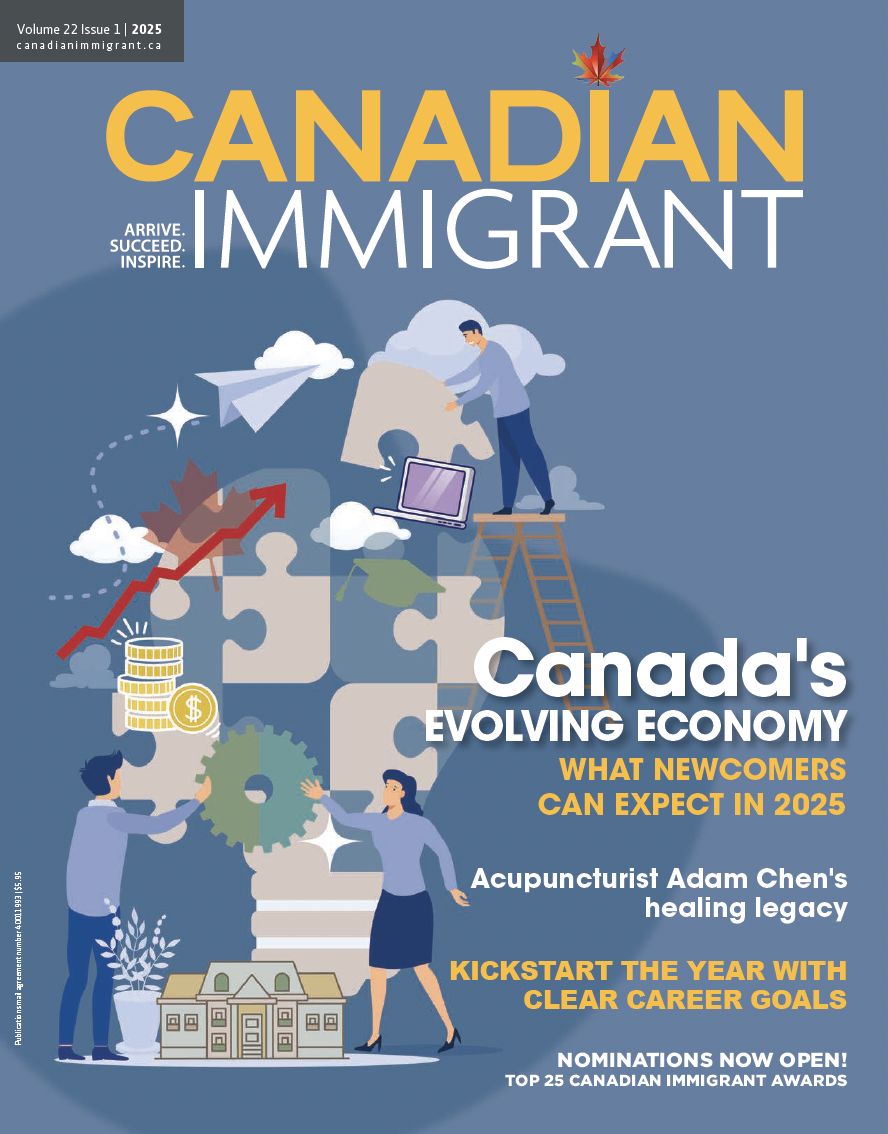Despite Shifting landscape regarding Immigration Policies in Canada, Top In-Demand Jobs for Immigrants in Canada in 2025: High Salary and Quick Placement Opportunities

Hot Jobs in Canada that Immigrants an lap up easiliy in 2025
In 2025, despite a shifting landscape regarding immigration policies in Canada, certain job sectors continue to offer excellent opportunities for skilled immigrants. With anti-immigrant sentiments rising in some areas, the demand for skilled labor remains high, making certain professions not only viable but also lucrative for newcomers.
Here are some top trending jobs in Canada for immigrants, the expected salaries, job duties, qualifications required, and tips for quick placement.
-
IT and Technology Jobs: High Demand, High Salary
Average Salary (Province-wise):
- Ontario (Toronto): $120,000–$140,000 per year
- British Columbia (Vancouver): $115,000–$130,000 per year
- Quebec (Montreal): $110,000–$125,000 per year
Job Duties:
- Designing, developing, and maintaining software systems.
- Managing IT infrastructure and ensuring cybersecurity.
- Analyzing system requirements and providing tech solutions to businesses.
- Troubleshooting hardware and software issues.
Qualifications Required:
- A degree in Computer Science, Information Technology, or related fields.
- Experience with programming languages (e.g., Java, Python, C++).
- Certifications like CompTIA A+, AWS Certified Solutions Architect, and CISSP can boost employability.
- Strong problem-solving and communication skills.
Quick Placement Tips for Immigrants: The technology sector in Canada has one of the highest demands for skilled labor. Immigrants with experience in cloud computing, software development, or cybersecurity are highly sought after. As per industry experts, “The tech sector is pivotal in the Canadian economy and will continue to grow in 2025,” says John Doe, a tech industry analyst.
Networking through platforms like LinkedIn and attending tech meetups will significantly increase the chances of landing a job.
-
Healthcare Jobs: A Growing Need for Medical Professionals
Average Salary (Province-wise):
- Ontario (Toronto): $140,000–$170,000 per year (for senior roles)
- British Columbia (Vancouver): $130,000–$150,000 per year
- Alberta (Calgary): $125,000–$150,000 per year
Job Duties:
- Overseeing medical teams and providing high-level care for patients.
- Managing healthcare facilities and optimizing patient outcomes.
- Working with medical technologies and equipment.
- Administering emergency medical care.
Qualifications Required:
- Medical degree or healthcare-related qualifications from recognized institutions.
- For specialized roles like surgeons, a fellowship or residency is required.
- Certification by relevant Canadian medical boards (e.g., College of Physicians and Surgeons of Ontario).
- Proven track record in patient care or management in healthcare settings.
Quick Placement Tips for Immigrants: The healthcare sector is one of the most critical fields in Canada. Despite a shortage of healthcare workers, especially in rural regions, immigrants with the right medical qualifications have significant job prospects. Dr. Emily Thompson, a healthcare recruiter, states, “Healthcare professionals, especially doctors and nurse practitioners, are always in demand, regardless of global economic shifts.”
-
Skilled Trades: The Backbone of Canadian Industry
Average Salary (Province-wise):
- Ontario (Toronto): $65,000–$80,000 per year
- Quebec (Montreal): $60,000–$75,000 per year
- Alberta (Calgary): $70,000–$90,000 per year
Job Duties:
- Installing, maintaining, and repairing electrical systems, plumbing, and HVAC systems.
- Welding, construction, and metalworking in industrial settings.
- Inspecting and ensuring the safety of infrastructure.
- Reading blueprints and technical diagrams to complete installations and repairs.
Qualifications Required:
- A diploma or apprenticeship certification in the relevant trade (e.g., electrician, plumber).
- Practical experience through internships or apprenticeships.
- Red Seal certification, which is a national standard for skilled trades.
- Ability to work in high-pressure situations and adhere to safety protocols.
Quick Placement Tips for Immigrants: Skilled trades are in demand due to ongoing infrastructure projects and housing developments in Canada. Provinces like Alberta and Ontario have a growing need for electricians, plumbers, welders, and carpenters. According to industry leaders, “Skilled trades professionals are always in short supply, especially in Canada’s booming construction sector.”
Immigrants can increase their chances of placement by enrolling in provincial apprenticeship programs and gaining Red Seal certification.
-
Engineering Jobs: The Foundation for Canada’s Growth
Average Salary (Province-wise):
- Ontario (Toronto): $80,000–$100,000 per year
- British Columbia (Vancouver): $75,000–$95,000 per year
- Quebec (Montreal): $70,000–$90,000 per year
Job Duties:
- Designing, building, and maintaining infrastructure such as roads, bridges, and buildings.
- Managing projects and teams of technicians and engineers.
- Conducting research to develop new technologies or improve existing processes.
- Ensuring compliance with industry standards and safety regulations.
Qualifications Required:
- A degree in Civil, Mechanical, Electrical, or Chemical Engineering.
- Professional Engineering (P.Eng.) certification, especially in Ontario and British Columbia.
- Experience with CAD software and project management tools.
- Excellent teamwork, analytical, and problem-solving skills.
Quick Placement Tips for Immigrants: Canada’s engineering sector is expected to grow, driven by new infrastructure projects and a focus on innovation. Immigrants with experience in civil, mechanical, or electrical engineering can quickly land high-paying jobs. As James Roberts, a Canadian engineering recruiter, says, “The demand for engineers in Canada is immense, especially with the current focus on sustainable development and infrastructure upgrades.”
Immigrants should focus on networking within the engineering community and apply for licensure to ensure recognition of their qualifications in Canada.
-
Finance and Accounting Jobs: The Heart of Canadian Businesses
Average Salary (Province-wise):
- Ontario (Toronto): $80,000–$100,000 per year
- British Columbia (Vancouver): $75,000–$95,000 per year
- Alberta (Calgary): $70,000–$90,000 per year
Job Duties:
- Managing financial accounts for businesses and individuals.
- Analyzing financial data to provide insights and recommendations.
- Preparing tax filings, audits, and financial reports.
- Ensuring compliance with financial regulations and tax laws.
Qualifications Required:
- A degree in Accounting, Finance, or a related field.
- Certification as a Chartered Professional Accountant (CPA) is highly recommended.
- Strong knowledge of financial software (e.g., QuickBooks, SAP).
- Ability to communicate complex financial data to stakeholders.
Quick Placement Tips for Immigrants: The finance and accounting sector offers great opportunities for immigrants with relevant qualifications. “Canada’s financial sector continues to thrive, and accounting professionals are always in demand,” says Sarah Mitchell, a finance recruiter.
To expedite job placement, immigrants should focus on obtaining Canadian certifications like the CPA and actively apply to major firms and financial institutions.
Despite increasing anti-immigrant sentiments in certain areas, Canada’s job market remains strong, particularly for skilled immigrants. High-demand sectors like technology, healthcare, skilled trades, engineering, and finance offer competitive salaries and quick placement opportunities.
To increase their chances of finding a job quickly, immigrants should:
- Obtain certifications recognized in Canada.
- Leverage networking platforms such as LinkedIn and industry-specific events.
- Seek help from employment agencies designed for immigrants.
- Stay informed about job market trends and continuously upgrade skills to stay competitive.
By aligning skills with the highest-demand sectors and staying proactive in their job search, immigrants can thrive in Canada’s evolving economy.

 New Education Assessment Requirement for Caregivers: A Major Setback for Immigration to Canada
New Education Assessment Requirement for Caregivers: A Major Setback for Immigration to Canada  ICE Deportations at Immigration Hearings: Truth, Risks & Legal Remedies
ICE Deportations at Immigration Hearings: Truth, Risks & Legal Remedies  What happens if the marriage ends before the conditional green card is granted to spouse
What happens if the marriage ends before the conditional green card is granted to spouse  Marriage Visa to the USA: Your Ultimate Guide to Love, Law, and a Green Card!
Marriage Visa to the USA: Your Ultimate Guide to Love, Law, and a Green Card!  Employment Scams Targeting Immigrants in Canada: How to Detect, Avoid, and Fight Back
Employment Scams Targeting Immigrants in Canada: How to Detect, Avoid, and Fight Back  America’s 2025 Deportation Crackdown: Should You Stay or Self-Deport?
America’s 2025 Deportation Crackdown: Should You Stay or Self-Deport?